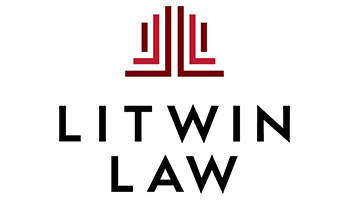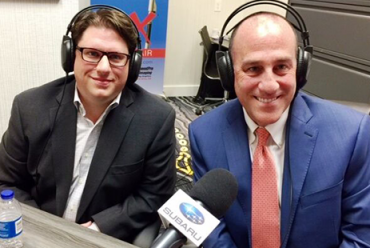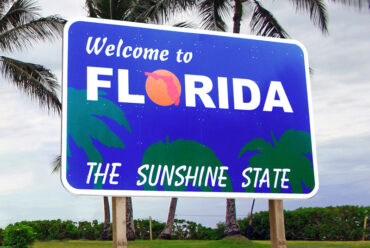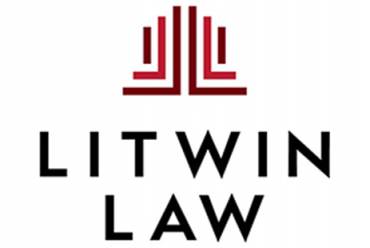Georgia Sales Tax Obligations For Nonprofit Fundraising Events: Admissions Charges, Galas and Silent Auctions
Nonprofit organizations that hold events to raise money must be cognizant of sales tax collection obligations. Many nonprofits that are exempt from federal income tax under I.R.C. § 501(c)(3) (“NFP” or “organization”) think that their federal exemption from paying income tax extends to sales tax. Some NFPs hold annual events and, as such, they do not believe that sales tax applies to charges for tickets for admission to the event. But nonprofit organizations, with a few exceptions, are required to collect sales tax.
Executive staff, board members, directors and outside advisors should take note of the organization’s sales tax collection obligations. The story below should give nonprofit boards, their directors and their advisors reason for pause.
This article covers obligations tied to admissions charges, galas and silent auctions.
Charges for Tickets or Charges for Admission. An organization or business that sells tickets or charges a fee for admission to a place of amusement, sports, entertainment or exhibition or display must collect tax on the ticket sales or charges for admission. Thus, an NFP that sells tickets for a gala, a street festival or another similar event must collect sales tax on the charges. (charges for entry fees for tournaments will be covered in another article).
A few years ago, a metro Atlanta nonprofit held a festival for which it sold tickets. Like most NFPs that hold annual events, the Atlanta nonprofit had been planning the event for several months and selling tickets at its Web site. A few days before the event, the Georgia Department of Revenue’s local regional office contacted the Atlanta nonprofit to remind the nonprofit to collect sales tax on the ticket sales for the festival. But the nonprofit had already sold most of the tickets and had not collected sales tax on the online ticket sales. Begrudgingly, the Atlanta nonprofit prepared to pay the uncollected sales taxes from its own funds. Luckily for the nonprofit, the organization is exempt from sales tax collection obligations, so, in the end, the NFP did not have to remit uncollected sales taxes. This exemption is unique to the Atlanta nonprofit and does not apply to other NFPs. The takeaway is that enforcement is a reality and NFP executives and their boards should take note of the obligations discussed in this article.
By law, sales of tickets or charges for admission are taxable retail sales. The seller must collect sales tax on such sales/charges.
Many NFPs sell tickets for their events at the organization’s Web site. The NFP should separately-state the charge for sales tax on the ticket charge. For example, if the NFP’s offices are in Cobb County and the venue for the event is in the City of Atlanta, then the NFP should charge sales tax using the City of Atlanta tax rate. This is true even if the online purchaser lives in Cobb County or another county. The receipt should show the separately-stated charge for the ticket and the sales tax.
Festivals and Block Parties. During the fall and spring, NFPs have festivals and/or tasting events in restricted areas, where area vendors set up booths and/or food trucks to give away or sell their popular menu items. The NFP that sponsors the event must charge sales tax on the admission charge, and the NFP must remit the tax to the Georgia Department of Revenue.
The NFP may charge food vendors and other vendors a fee for space at the festival. Such charges are considered rent for real property. The charges are not subject to sales tax.
Galas with Food and Entertainment. NFPs hold an annual gala as a fundraiser. The ticket charge includes food/drink and entertainment.
The ticket or receipt given to the attendee should show the ticket charge and the applicable sales tax on a separate line (including the sales tax with the ticket price is discussed below). The NFP should charge tax based on the local jurisdiction where the event is held, and not where the purchaser lives or where the NFP’s offices are located.
If the entertainment, such as music, provides de minimis value, then part of the ticket price is not taxable. In particular, the entertainment may be piped-in music or other entertainment that a typical attendee would not pay to see. In such a case, according to the Georgia Department of Revenue, the NFP is required to charge tax only on the portion of the ticketed tied to the fair market value of the food/drink.
For example, if the ticket price is $150.00 and the fair market value of the food/drink is $50.00, then the NFP must collect and remit tax on $50.00. The NFP should give the attendee a receipt as follows (assuming that the event is held at a venue in the City of Atlanta):
| FMV Food/Drink | $ 50.00 |
| 8.9% City of Atlanta Tax on Food/Drink Charge | $ 4.45 |
| Tax-Deductible Contribution | $100.00 |
| Total Charge for Ticket | $154.45 |
The above example assumes that the NFP pays sales tax on the food purchases. Finally, the NFP should keep a record (perhaps a duplicate of each receipt) of the breakdown of the charges on each ticket.
Silent Auctions. At the core of many annual galas is the silent auction. NFPs and those who donate the items to be auctioned must understand all applicable sales tax obligations.
The donor of the item must pay sales tax on the purchase of the item. If the donor is a business that removes the item from resale inventory, then the donor must accrue and remit sales tax on the fictional sale. A fictional sale occurs when the business removes the item from inventory to give away. The business must pay sales tax on the cost of the item removed from inventory. Under the Georgia Department of Revenue’s regulation, a business that buys items for resale and without paying sales tax and holds the property for sale at retail in the regular course of business is liable for tax when the property is withdrawn from resale inventory to donate for the auction. The donor business must accrue and pay tax on the business’ cost price of the property based on the tax rate of the county (and/or city) where the property is removed from resale inventory.
The NFP must collect sales tax from the winning bidder. Before the auction, the NFP should set the fair market value for each item. The NFP should mark each bid sheet with the item’s fair market value. If the winning bid exceeds the item’s fair market value, then the winning bidder pays tax on the fair market value of the item. The NFP prepares a receipt as follows:
| Winning Bid | $750.00 |
| Fair Market Value | $450.00 |
| Deductible Contribution | $300.00 |
| Sales Tax (assuming Cobb County is auction location) | $ 27.00 |
If the winning bid is less than the item’s fair market value, then the winning bidder pays tax computed on his/her winning bid. The NFP prepares a receipt as follows:
| Winning Bid | $400.00 |
| Fair Market Value | $450.00 |
| Deductible Contribution | $ 0.00 |
| Sales Tax (assuming Cobb County is auction location) | $ 24.00 |
In sum, whether the winning bid exceeds the item’s fair market value or is less than the item’s fair market value, the NFP must separately-state the sales tax on the receipt. The NFP should give the receipt to the winning bidder. The NFP should keep a copy for the NFP’s records.
Gala Door Prizes and Raffle Tickets. Some galas end with a raffle ticket drawing for a large gift. Some galas end with parting gifts or mementos of the event that the NFP gives to the attendees.
Raffle Tickets. If the NFP includes the raffle ticket with the purchase of the admission ticket for the event, and if the lucky winner receives a gift donated by a third-party, then the NFP does not have to charge sales tax on the raffle ticket. If the attendee buys the raffle ticket separate from the admission ticket, then the charity should collect sales tax on the purchase of the raffle ticket.
Parting Gifts. The NFP should pay sales tax on the purchase of the gifts. If a third-party donates the parting gifts, then the donor must pay sales tax on the purchase of the gifts. Then, when the donor donates the gifts, the donor does not owe tax and the NFP does not owe tax. The attendees do not have to pay tax on the gifts when receiving the gifts. The NFP may owe second-level sales/use tax where the event is held in a county that has a higher tax rate than the NFP’s headquarters. For example, if the NFP buys parting gifts in Cobb County and pays the 6% Cobb tax, and if the event is held in the City of Atlanta, with an 8.9% tax rate, then the NFP must pay the 2.9% second-level sales/use tax on the difference in the local rates.
Conclusion. Nonprofit organizations face several sales tax compliance laws and must be aware of their obligations. They must ensure that they collect sales tax when required. Failing to collect tax could subject all responsible persons (jointly and severally) to personal liability for the uncollected sales taxes.
Litwin Law represents individuals and businesses in state and local tax matters. Litwin Law deals with a variety of issues that arise during audit and during protest and appeal to the state taxing agencies across the country.
As a Fellow of the American College of Tax Counsel and as a recognized Super Lawyer and U.S. News Best Lawyer, Richard Litwin devotes his practice to multistate tax, state and local tax, and tax controversies. He co-chairs the Georgia Department of Revenue/Tax Bar Liaison Committee. He has chaired the State Bar of Georgia’s Section of Taxation. He works with several nonprofit organizations in providing state tax counsel and advice.
Note: “Pass the SALT” is a blog of The Litwin Law Firm, P.C., d/b/a Litwin Law, and is dedicated to sharing views and ideas on state and local taxation. This document is an overview and summary of state and local tax obligations. This document is not intended to be, nor should be interpreted as, legal advice. For legal advice, the reader should contact an attorney.








